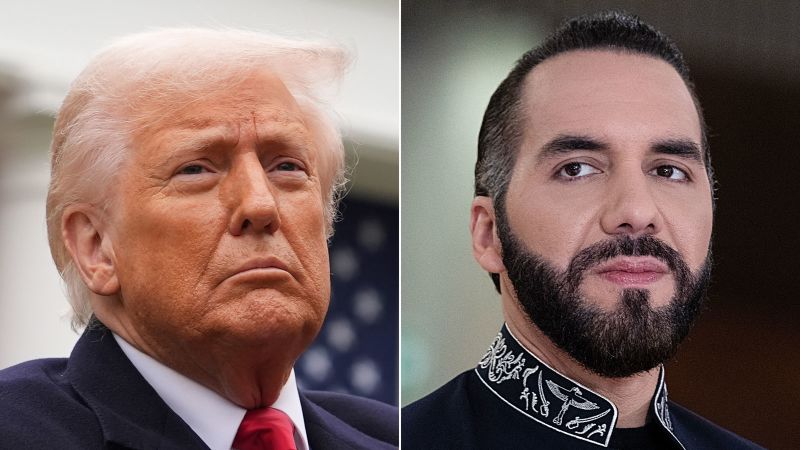
Trump set to host Bukele at White House as El Salvador plays key role in administration’s immigration agenda
CNN
In an era when American alliances have been strained to their breaking point by tariff wars and disputes over military spending, one leader has inserted himself firmly in President Donald Trump’s good graces: El Salvador’s Nayib Bukele, who will visit the White House on Monday.
In an era when American alliances have been strained to their breaking point by tariff wars and disputes over military spending, one leader has inserted himself firmly in President Donald Trump’s good graces: El Salvador’s Nayib Bukele, who will visit the White House on Monday. Bukele’s willingness to accept hundreds of migrants who the Trump administration claims are gang members or violent criminals has been critical to the president’s ambition of deporting as many as a million undocumented people before the first year of his second term is over. Secretary of State Marco Rubio, who announced Sunday that an additional 10 alleged gang members had been sent to El Salvador, wrote online that Trump and Bukele’s alliance “has become an example for security and prosperity in our hemisphere.” Monday’s visit will cement Bukele’s status as one of the closest foreign partners of the new Trump administration, which has alienated some traditional US allies in its early days. One of the region’s most popular leaders, Bukele has called himself “the world’s coolest dictator” and the “philosopher king” as he suspends certain civil liberties to go after his country’s gangs. That has earned him the ire of international human rights organizations, which allege large-scale abuses in his crackdown on crime. But it has also earned him popularity inside El Salvador; Bukele, 43, won reelection last year by a landslide. Trump has taken notice. He called his counterpart “President B” on social media over the weekend and praised him for “graciously” accepting “some of the most violent alien enemies of the World and, in particular, the United States.”

Trump emergency management officials are discussing reforms that would make it much harder for communities to qualify for federal disaster assistance, honoring President Donald Trump’s executive order to shift more responsibility for disaster response and recovery to states rather than the federal government.

 Run 3 Space | Play Space Running Game
Run 3 Space | Play Space Running Game Traffic Jam 3D | Online Racing Game
Traffic Jam 3D | Online Racing Game Duck Hunt | Play Old Classic Game
Duck Hunt | Play Old Classic Game










